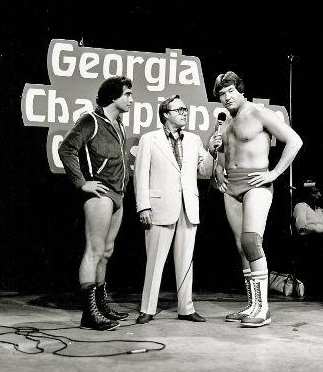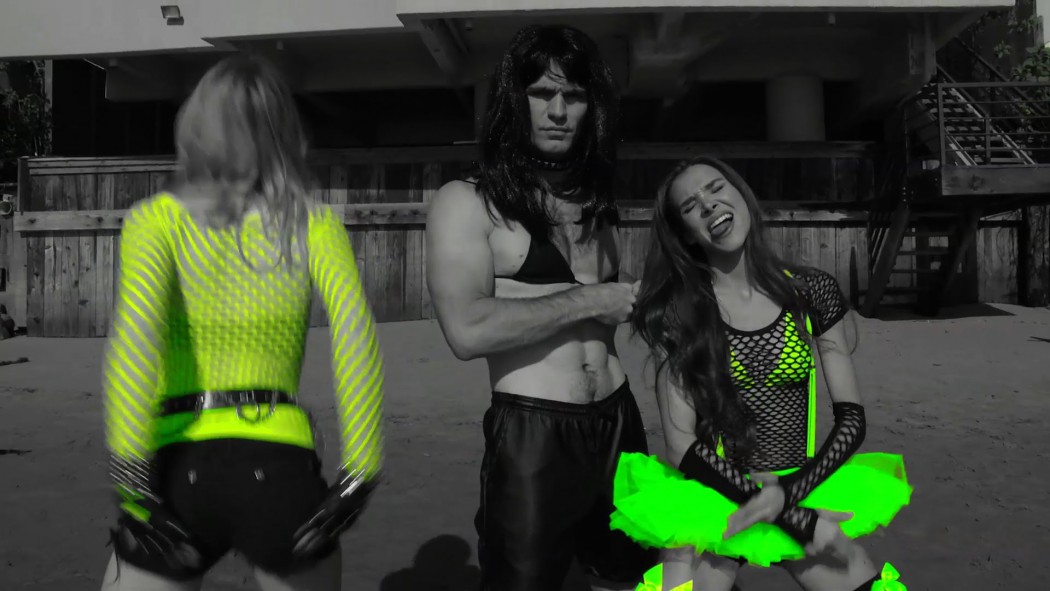Last week, filmmaker Max Landis posted a wildly popular digital short on YouTube entitled Wrestling Isn’t Wrestling. The premise of this “somewhat-mostly-accurate educational parody film,” as he calls it, is that what people think professional wrestling is, it’s not. Its rich storytelling and epic, almost mythological, canon is generally obscured by that ever present question from baffled non-fans, “You know it’s all fake, right?”
 I’m not going to lie – I absolutely love professional wrestling. Since I first laid my adolescent eyes upon the masked Mr. Wrestling II on Georgia Championship Wrestling in the 1970s, I became a dyed in the wool fan of the unique blend of physicality and scripted performance that has come to be known as “sports entertainment.” From the cultural impact of Hulkamania in the 1980s, through the downturn of the industry in the mid-1990s, to the explosion in popularity of the WWF vs. WCW Monday night wars, I excitedly ordered the pay-per-views, attended the live events, and fantasy booked storylines as any self-respecting fan should.
I’m not going to lie – I absolutely love professional wrestling. Since I first laid my adolescent eyes upon the masked Mr. Wrestling II on Georgia Championship Wrestling in the 1970s, I became a dyed in the wool fan of the unique blend of physicality and scripted performance that has come to be known as “sports entertainment.” From the cultural impact of Hulkamania in the 1980s, through the downturn of the industry in the mid-1990s, to the explosion in popularity of the WWF vs. WCW Monday night wars, I excitedly ordered the pay-per-views, attended the live events, and fantasy booked storylines as any self-respecting fan should.
Despite whatever you might think about pro wrestling, it possesses an undeniable cultural currency. In the past several weeks alone, World Wrestling Entertainment’s (WWE) flagship television show Monday Night Raw has welcomed a series of celebrities, including The Daily Show’s Jon Stewart who continued his verbal feud with smarmy villain Seth Rollins, in the buildup to Wrestlemania 31, where 70,000 fans will gather this Sunday at Levi Stadium in Santa Clara, CA.
Professional wrestling, much like organized religion, operates within its own system of internal logic and rules. To the uninitiated outsider, the inability of a wrestler to prevent himself from bouncing off of the ropes (perhaps gravity operates differently within the squared circle) or a suplex inflicting damage only on an opponent despite both bodies slamming into the mat, might appear as strange as, say, walking in on the ceremony of holy communion (without the chair shots, of course) with no understanding of the purpose or meaning behind the ritual.
Max Landis points out that the bizarre internal logic of the sport is incidental to fans because, ultimately, wrestling isn’t about wrestling—it’s about constructing mythology and meaning. We know it’s fake, and we really don’t care. The often strange and peculiar logic of religion serves the same function, I’d argue, and the catcalls of unbelievers—“You know it’s fake, right?”—miss the point entirely.
And then there are those who do think it’s real, who can’t separate fantasy from reality. Those fans who believe that The Undertaker is an actual undead wizard who conjures lightning (or those faithful who agree that God wants Creflo Dollar to have a $65 million jet.)
A week doesn’t pass that I don’t see a viral Facebook post regarding a seriously ill child who is sure to die from cancer unless thousands of people pray for healing (It’s difficult not to imagine God in heaven, watching the prayer ticker anxiously while muttering, “Come on, folks, just ten-thousand more prayers and I can save that little girl!”) This is often accompanied by an inspirational credo, something like: “Faith may move mountains, but prayer moves God.”
This view of prayer breeds some seriously twisted theology, one that gives God credit for the rain, but no blame for the drought. Meaning, if our fictional sick child happens to be cured, then praise be to God. If not, well, the church just needs to be sure to pray more.
In the 1993 film Shadowlands, C.S. Lewis, played by Anthony Hopkins, is being comforted by his friend Harry after his wife, Joy, has died from cancer. Harry says, “I know how hard you’ve been praying; and now God is answering your prayers.” Lewis responds,
“That’s not why I pray, Harry. I pray because I can’t help myself. I pray because I’m helpless. I pray because the need flows out of me all the time, waking and sleeping. It doesn’t change God, it changes me.”
Lewis gets that a Creator swayed by every request from the created (petty or otherwise) is worthy of neither worship nor petition. God is not a cosmic gumball machine, dispensing tasty treats when prayerful coins are inserted into a magic slot.
So yes, wrestling isn’t wrestling, it’s a meaning machine.
Similarly, what is considered prayer by a lot of Americans is actually not prayer at all. The admonition of Jesus to “go into your room and shut the door and pray to your Father who is in secret” is a Stone Cold Steve Austin double-barreled middle finger to misguided social media prayer-a-thons that seek viral ‘likes’ in the hopes of manipulating God, rather than the kind of sincere introspection that, as C.S. Lewis knew, changes us at a fundamental level.




